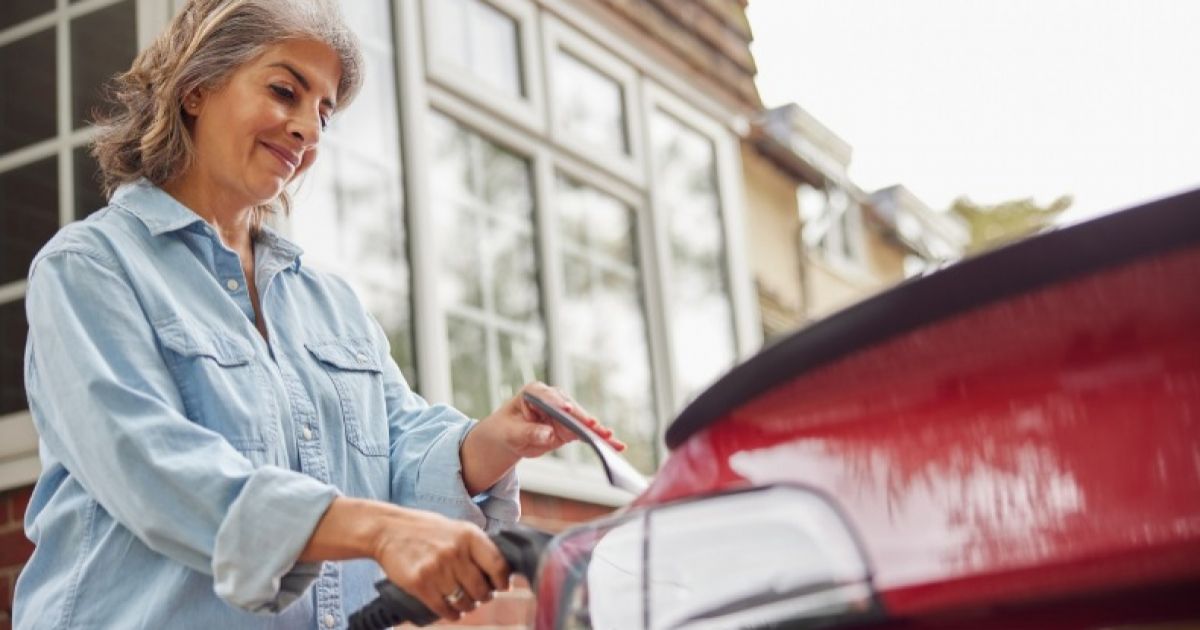All new homes and offices built in England from 2022 will include electric vehicle charging stations (EVs) as a world first.
The new chargers will be “smart” devices that can communicate with cars to determine the best time to recharge the batteries and prevent grid overload.
Transport Secretary Rachel Maclean announced the move amid growing concerns about a lack of plug-in points.
Earlier this year, the competition and market regulator said that more than 250,000 charging points will be needed by 2030. 1 According to the zap map, there are only 25,713.2 on September 15
There are currently 500 sockets installed every month in the UK – less than 700 a day recommended by auto experts.
The government hopes its breakthrough laws will meet the need for more charging points ahead of the 2030 ban on sales of new diesel and gasoline cars.
While it is much cheaper to charge electric cars from a home socket, the new plans are designed to allow some of the 40% of UK households with no off-street parking to have access to chargers in their workplace
An initial consultation for mandatory domestic charging points suffered from significant delays two years ago due to the coronavirus outbreak and the parliamentary elections.
In related EV charging news, all home charging stations installed after May 30, 2022 must be connected to the internet in order to be turned off at peak times. 4th
EV chargers will be a familiar sight across the country after the first all-electric car charging station opened in Essex last December. Gridserve, which opened the Braintree site, plans to build 100 more charging stations in the UK.
Transport Secretary Grant Shapps even enlisted the artistic support of the Royal College of Art to design an electric vehicle charging station that is “as iconic and recognizable as the British telephone box, the London bus or the black taxi”.
Clive Grinyer, Head of Service Design at the Royal College of Art, said, “This is an opportunity to support the design of a future icon that will be part of our national culture on our way to a sustainable future.”

